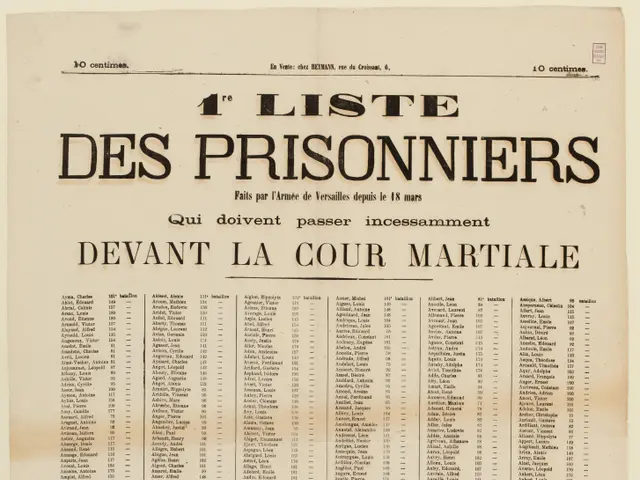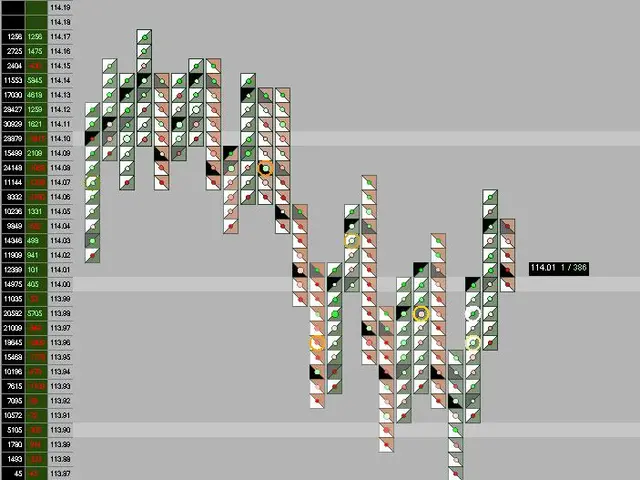Declining Naira Value: United States Points Out That Nigeria's ₦70,000 Minimum Wage Is No Longer Worth As Much
=========================================================================================
In a nation grappling with several pressing issues, Nigeria continues to face challenges in the areas of minimum wage, child marriage, and its justice system.
Minimum Wage and Currency Depreciation
The devaluation of the Nigerian Naira against the US Dollar has significantly reduced the purchasing power of Nigeria's minimum wage for federal workers. With the exchange rate shifting from around 1,490 Naira per dollar earlier in 2025 to above 1,600 Naira per dollar by mid-year, each Naira is worth less in terms of dollars and imported goods priced in foreign currency.
The average USD/NGN rate in 2025 is about 1,547 Naira per US Dollar, up from lower rates earlier in the year, reflecting a weakening Naira by roughly 4-7% within the year so far. A weaker Naira makes imported goods and services more expensive in Naira terms because it takes more Naira to buy the same amount of foreign currency. Since many essential goods and commodities in Nigeria, such as fuel, machinery, and some food products, are priced in or influenced by the US Dollar, the increased cost directly affects the cost of living.
Although the nominal minimum wage for federal workers may remain constant in Naira terms, its real value or purchasing power—the amount of goods and services it can buy—declines as prices rise due to import cost inflation. There is also limited foreign currency supply in Nigeria, pushing the Naira's devaluation further and fueling inflation. Forecasts indicate that the Naira could weaken further by 2029, exacerbating this erosion of purchasing power over time.
Child Marriage and Engagement with Religious Leaders
Federal law in Nigeria sets a minimum age of 18 for marriage for both boys and girls, but many states, especially northern states, do not uphold this federal minimum age. The federal government is engaging religious leaders, emirs, and sultans to address the health risks linked to child marriage.
Justice System and Enforced Disappearances
Some detainees in Nigeria have been held in pretrial detention for periods equal or exceeding the maximum sentence for the accused crime. Security forces in Nigeria sometimes abuse their authority, keeping individuals incommunicado for weeks or months. Enforced disappearances, arbitrary detentions, and poor due process are common issues within the justice system.
The report does not mention any specific actions being taken to address these issues within the justice system in Nigeria.
Wage Law Enforcement and Informal Economy
Penalties for non-compliance with minimum wage and overtime laws in Nigeria are low and not commensurate with other crimes such as fraud. Enforcement of minimum wage and overtime laws remains weak in Nigeria, with some states refusing to implement the new law due to financial constraints.
Approximately 70-80% of Nigeria's working population operates in the informal economy, where wage laws, hours of work, and occupational safety regulations are hardly enforced.
The Report's Conclusion
The report concludes that while Nigeria has made progress on democratic reforms, systemic corruption, poverty-level wages, and weak human rights enforcement continue to erode citizens' trust in governance. Child rights violations, particularly early marriage, are persistent issues in Nigeria.
[1] Source: Nairametrics (2025) [2] Source: Central Bank of Nigeria (2025) [3] Source: CBN Governor (2025) [4] Source: FMDQ Securities Exchange (2025)








